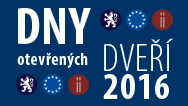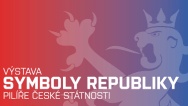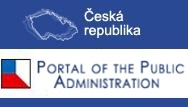Important days
6. 4. 2010
The Košice Government Programme
The World War Two had not been finished yet when the government which was to guide Czechoslovakia from the period of its end to the start of renewal of the affected country was appointed by the President Beneš in Košice. The composition of the new government was based on the compromise adopted by the London government headed by Beneš and representatives of the Communist Party who represented the exile leadership in Moscow. It was the former ambassador to the Soviet Union and the social democrat Zdeněk Fierlinger who became the new Prime Minister. The individual ministerial offices were occupied by the representatives of political parties that were permitted after the war or by non-party men.
Newly appointed government adopted on its session on 5 April 1945 its programme declaration which is known in the history as the Košice Government Programme. In the programme there were set targets for the near future that primarily concerned the efforts to finish the war as soon as possible; the renewing state power was to contribute to this purpose. It concerned the support of the Red Army, in particular through the aid focused on logistic. Furthermore the government declared its efforts aimed at direct military contribution whether it was in the form of accelerated formation of further troops and their dispatch to the front or in the form of the support of rising guerrilla movement.
In the programme there were also measures outlined which were prepared for post-war period. It concerned in particular punishment of Germans, Hungarians, collaborators and traitors. Germans and Hungarians were to be expatriated unless they demonstrated their loyalty to the republic. All the war offenders were to be properly punished for their offences. The programme also responded to the uncertain position of the Carpathian Ruthenia concerning the international law and it proclaimed the preparation of a referendum on possible accession of that country to the Soviet Union.
As far as longer time horizon is concerned, the programme supposed relatively marked changes in the state economy. In connection with the immediate measures in the form of forced administration, also long-term structural changes were prepared. Although the nationalization was not directly mentioned in the programme, it was implicitly indicated in several passages of the document. The programme also mentioned principles of the foreign policy, steps of the post-war restoration in various areas of the state, e.g. in culture, education, army and such like.
The Košice Government Programme was a crucial document of the post-war Czechoslovak policy. The first steps of the post-war restoration of Czechoslovakia were taken in compliance with its principles. The main ideas were incorporated into the document by the Communist Party of Czechoslovakia and that is why the document is sometimes regarded as a preparation of the subsequent rise to power of that party. The execution of the programme brought the Communist Party political popularity and political power which were later properly exerted.




